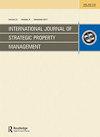Effect of Leadership Styles on Employee Motivation and Job Satisfaction in Multinational Corporations in Vietnam
IF 1.7
4区 管理学
Q3 MANAGEMENT
引用次数: 0
Abstract
Purpose: The aim of the study was to assess the effect of leadership styles on employee motivation and job satisfaction in multinational corporations in Vietnam Methodology: The study adopted a desktop methodology. Desk research refers to secondary data or that which can be collected without fieldwork. Desk research is basically involved in collecting data from existing resources hence it is often considered a low cost technique as compared to field research, as the main cost is involved in executive’s time, telephone charges and directories. Thus, the study relied on already published studies, reports and statistics. This secondary data was easily accessed through the online journals and library Findings: The results showed that transformational leadership was the most preferred and effective style for enhancing employee motivation and job satisfaction, followed by democratic leadership. Autocratic and laissez-faire leadership styles were found to have negative effects on employee outcomes. The study also revealed that cultural differences, organizational climate, and individual factors influenced the perception and preference of leadership styles among employees and managers. The study concluded that MNCs in Vietnam should adopt a flexible and adaptive leadership approach that matches the needs and expectations of their diverse workforce. Unique Contribution to Theory, Practice and Policy: Transformational Leadership Theory, Expectancy Theory and Social Exchange Theory may be used to anchor future studies on the effect of leadership styles on employee motivation and job satisfaction in multinational corporations in Vietnam. Multinational corporations operating in Vietnam should benefit from the research findings to tailor their leadership training programs. Policymakers can make informed decisions about regulations that promote employee well-being, productivity, and retention in multinational corporations.越南跨国公司领导风格对员工动机和工作满意度的影响
目的:本研究旨在评估越南跨国公司领导风格对员工动机和工作满意度的影响
方法学:本研究采用桌面方法学。案头研究指的是二手数据或不需要实地调查就能收集到的数据。案头调查基本上涉及从现有资源中收集数据,因此,与实地调查相比,案头调查通常被认为是一种成本较低的技术,因为主要费用是行政人员的时间、电话费和通讯录。因此,这项研究依赖于已经发表的研究、报告和统计数据。这些辅助数据很容易通过在线期刊和图书馆获得
结果发现:变革型领导是提升员工积极性和工作满意度最有效的领导方式,其次是民主型领导。专制和自由放任的领导风格对员工的工作结果有负面影响。研究还发现,文化差异、组织氛围和个人因素都会影响员工和管理者对领导风格的感知和偏好。研究得出的结论是,在越南的跨国公司应该采用灵活和适应性强的领导方式,以满足其多样化员工的需求和期望。�在理论、实践和政策方面的独特贡献:变革型领导理论、期望理论和社会交换理论可以用来锚定越南跨国公司领导风格对员工动机和工作满意度的影响的未来研究。在越南经营的跨国公司应该从研究结果中受益,以定制他们的领导力培训计划。在跨国公司中,决策者可以就促进员工福利、生产力和留任的法规做出明智的决定。
本文章由计算机程序翻译,如有差异,请以英文原文为准。
求助全文
约1分钟内获得全文
求助全文
来源期刊
CiteScore
4.00
自引率
18.50%
发文量
23
审稿时长
15 weeks
期刊介绍:
International Journal of Strategic Property Management is a peer-reviewed, interdisciplinary journal which publishes original research papers. The journal provides a forum for discussion and debate relating to all areas of strategic property management. Topics include, but are not limited to, the following: asset management, facilities management, property policy, budgeting and financial controls, enhancing residential property value, marketing and leasing, risk management, real estate valuation and investment, innovations in residential management, housing finance, sustainability and housing development, applications, etc.

 求助内容:
求助内容: 应助结果提醒方式:
应助结果提醒方式:


